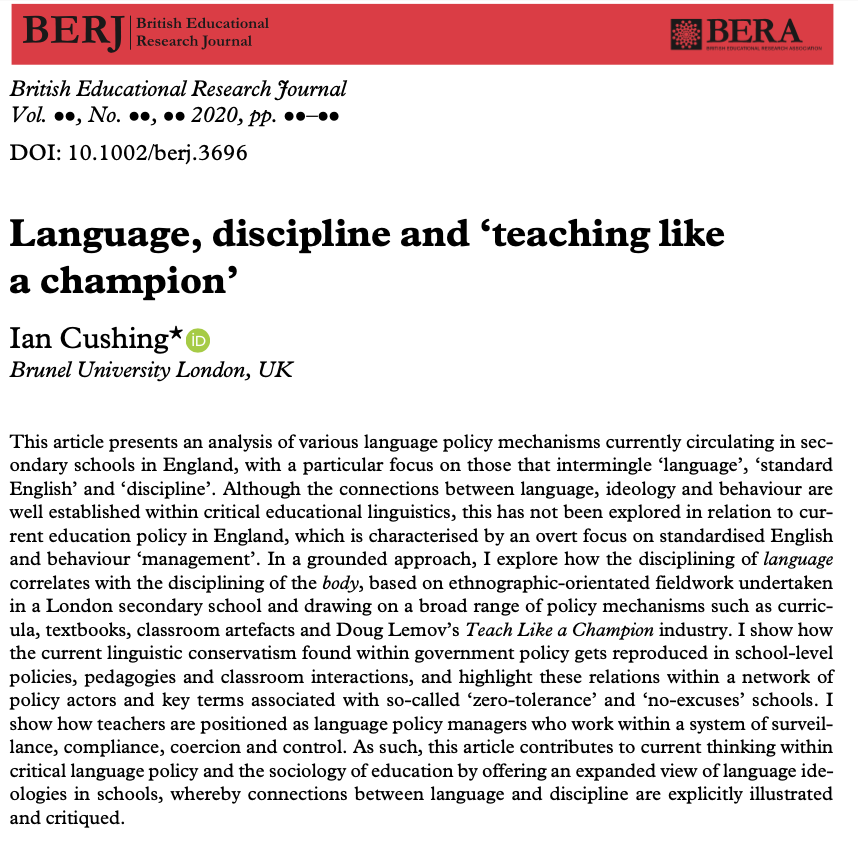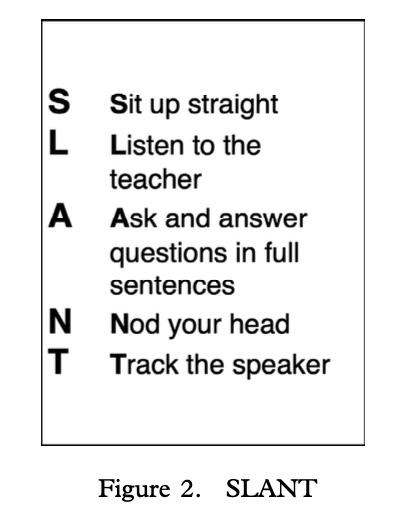My new research is now published open access in British Educational Research Journal: 'Language, discipline and ‘teaching like a champion’. It's a critique of language and body policing in so-called 'zero-tolerance' or 'no-excuses' schools.
The research explores connections between language, discipline and surveillance in England's secondary schools. It describes the mechanics of language disciplining in policy texts and how this gets enacted in classrooms and corridors.
My aim was to explore the ‘social life’ of language policy in a so-called zero-tolerance school in drawing on critical, ethnographic-orientated methods of data generation, including the analysis of local and state policy mechanisms and their enactment.
It critiques the propagation of the standard language ideology in schools: a deeply embedded myth which works to socialise teachers into practices where the racialised and classed standardised form is seen as ‘better’ than its non-standardised variants.
It examines how discourses about language get wrapped up as part of wider discourses around discipline, how standardisation processes intermingle both language and the body, and how language itself is disciplined through various channels of surveillance.
It argues how ‘strict’ language and discipline policies do nothing to address existing systems of social hierarchies, but perpetuate them through the insistence that racialised and classed young people assimilate towards a set of ‘standard’ behaviours and ways of talking.
The Teach Like a Champion (TLAC) industry is a focal point: tightly structured scripts, acronyms, vocabulary and gestural procedures for the micro-management of classroom discourse and the body, with an overt focus on student control via the deployment of rewards and punishments.
I explore the history of TLAC within England and the USA, and frame it as a language policy for teachers, critiquing its hostile sport and business metaphors and its aim to craft classroom cultures of standards, measurability and control.
I show how TLAC gets enacted in a school, through 'body pedagogies' such as SLANT (and other derivatives such as SPEAK and SHAPE) which function as a set of practices and beliefs for managing and monitoring the communicative behaviours of others, especially standardised English.
I show how techniques such as 'Format Matters' get enacted in schools, targeting the policing of nonstandardised spoken grammar, ‘slang’ and articulation. I argue this serves to further entrench social and educational inequality through the branding and stigmatising of language.
I explore the panoptic surveillance of language in schools, which happens via a cluster of mechanisms: from government-produced policy documents through to school-level policies, textbooks and micro-level classroom interactions.
Thanks to @viv_ellis for a set of hugely useful comments and suggestions at drafting stage, and to @BERJ_Editors for a set of detailed, critically engaged and thoughtful reviews which undoubtedly improved the work.
Critical research around language, surveillance, discipline and schools by people such as Urszula Clark, @wordspinster, @damien_page, @ChristyKulz, @aprilbakerbell, @DrJonathanRosa, @nelsonlflores were also big influences. Thank you!

 Read on Twitter
Read on Twitter



